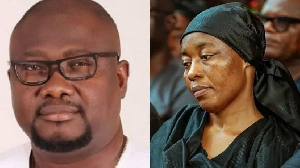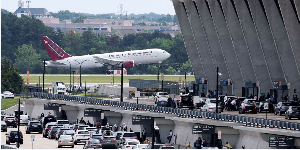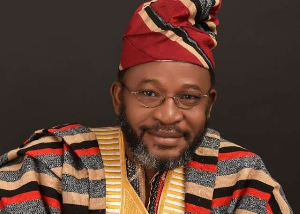The media landscape of late has been politicised. We spend more time in debating on issues which bears little relationship towards national development. Whilst someone is busily building a temple of peace somebody somewhere is beating war drums. This is one of the greatest agonies of life. It appears in Ghana we spend our prime time in debating empty philosophical debate when the masses are bleeding from the wounds of economic hardship.
As a developing nation if find it embarrassing when people as at twenty first century are entering the moon and we sit down in Accra, Kumasi or Tamale and not think about our future. The good book says for lack of vision my people perish.
Ghana needs to development but I am afraid that they way we are going through things we would not get no where near our contemporaries in South East Asia.
There is one area which I think Ghana has a nation has overlooked. Every year about forty thousand tertiary students especially those in the universities apply for visas to go to mainly the United Kingdom and United States during the long break. Those who are not quite fortunate enough to get visa would have to spend most of the time idling around for three months. Those who are fortunate enough to get vacation training or attachment are not treated well. You will be with a company or an industry for a period of three month and on the last day of leaving you inform the manager and he says thank you without giving the student any remuneration. Why should all these happen? The reason is simple: Ghana has existed for nearly fifty nears and we have not been able to develop any sound national vacation and industrial attachment policy.
The absence of this policy has caused most of our students to find all available means of travelling outside and also be called burgers. Last year the Director of Criminal Investigation Department (CID) of the Ghana Police Service said that those who were arrested by the Visa and Fraud Unit of Ghana Police Service, it was students from the tertiary institutions who topped the list. Why? Because they are desperate to travel.
Not all students can be given visa to go to the United Kingdom or the US. What about those who would like to stay in Ghana and work during the vacation? At least they too can get some money to pay their academic user facility and residential user facility fees when school re-opens.
It sad to see young and energetic youth would like to find a place to do vacation attachment but they are turned down. The Bible reminds us that the devil finds work for the idle hand.
The time has come for Ghana as nation to see how best we can solve the plight of students in this country. Politicians always want to get students support for their campaign but they fail to help them to overcome their insurmountable.
In other part of the world enough structures have been put in place to create peak season jobs such that the university and other tertiary students can take advantage during summer vacation. Those who are even ahead of us have not stopped doing this. However, Ghana, a nation which finds itself on the highway of development has not even dreamt of it.
There is a general feeling that graduates being churned out by the tertiary institutions lacks the practical know how. The danger here is that if we fail to formulate solution to solve this problem the youth will find no trust in the country and it would also facilitate brain drain in the country. We need to retain our best brains in the country for national development. Some years ago the Vice Chancellor of the Kwame Nkrumah University & Technology Professor Kwasi Andam said nation is built with human resources and not remittances. We are getting things wrong in this country. We feel proud about the billions of dollars that comes to Ghana as remittances from non-resident Ghanaians.
In a more capitalistic economy as we find ourselves in Ghana the policy direction must come from the government through its ministries like Education, Sports and Science, and Ministry of Manpower and Employment. This policy is needed now more than before. This is so because industrial attachment adds value and confidence to our students and thereby instilling a feeling of trust in himself and at the same time getting him or her some money to pay for fees whilst learning.
Universities and polytechnics in the country should strengthen their liaison with industries and firms in the country such that those students who go on industrial and vacation attachment can earn some credit hours. When this is done we would no longer be producing students with high blood pressure of theories but anaemia of practice.
Non-governmental organizations and private sector must also see this as their collective duty to be partners in national development by collaborating with universities and other tertiary institutions by offering places to students who wants to do vacation attachment.
We need to look into future and start confronting it today. Procrastination is still the thief of time. We may cry desperately for time to pause in her passage but time is deaf to such pleas. There is an invisible book of life that faithfully records our neglect and vigilance. We need to rise up from our lackadaisical approach in national development. Enough of high sounding political phrases like ?government to do is? and ?it is in the pipeline? should be over by now. We need to start saying ?government has done this?. The Chinese, Indians, Pakistanis, Malaysia, Singapore and the Koreans are moving with a jet like speed whilst we Ghana move with crunching footsteps It is high time we set our priorities right. This is the trumpet of conscience waking us up to action and to the realities of the day.

Views expressed by the author(s) do not necessarily reflect those of GhanaHomePage.














